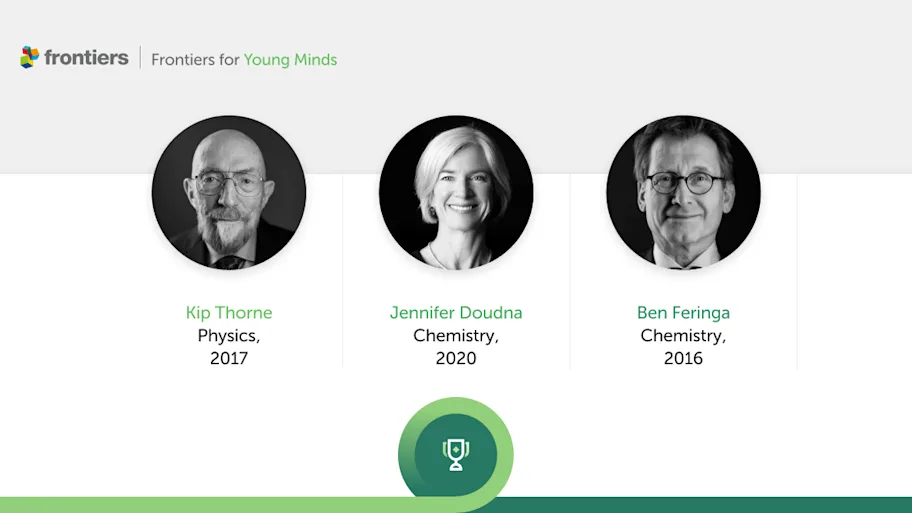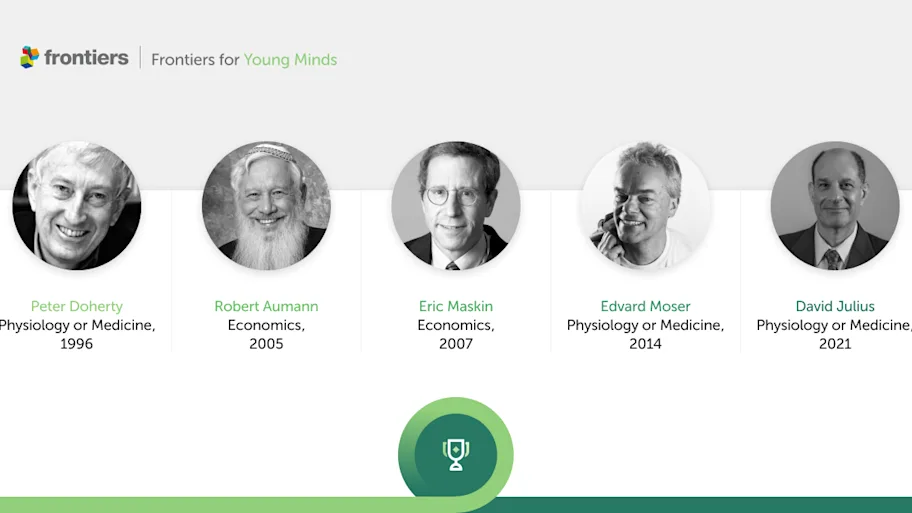
- Science news
- Young Minds
- Young people discover the technologies shaping their future in the World Economic Forum and Frontiers for Young Minds collection
Young people discover the technologies shaping their future in the World Economic Forum and Frontiers for Young Minds collection
Today's breakthroughs – from interactive smart surfaces to genetically engineered animal organs – that are emerging from laboratories now will be day-to-day realities for tomorrow’s adults and leaders. In this new collection, the next generation takes a driver’s seat in understanding and communicating the technologies that will transform our world.

A new collection from the open-access science journal for kids Frontiers in Young Minds (FYM), published in collaboration with the World Economic Forum, gives curious young people a front-row seat to the innovations that could define their future – and invites them to take active control, ensuring their young peers can understand and enjoy the science, before it is published.
Reflecting on the collection, young reviewer Hrdaya, age 11, commented:
“I did not know about these technologies before reviewing the report. I think they are absolutely ingenious and wonderful. Having these technologies would make life easier and more resourceful on earth.”
From AI-powered science discovery and real-time environmental sensing to privacy-enhancing technologies and new materials to cool buildings, the Top 10 Emerging Technologies of 2024 have been reimagined for young readers and reviewed by kids worldwide. Their feedback, questions, and insights shaped how these cutting-edge ideas are communicated, offering a fresh and often surprising look at technologies that could soon change how we live, work, and care for the planet.
The collection is based on the Top 10 Emerging Technologies of 2024 report, co-published by the World Economic Forum and Frontiers, which served as the Forum's official knowledge partner. Many of the leading researchers who contributed to the original expert-driven report returned to adapt their work for this new youth-focused collection.
Each article focuses on one of the ten emerging technologies, such as carbon-capturing microbes, immersive technology for urban planning, or platforms orbiting in the stratosphere which could enable internet everywhere (HAPS). Tailored for a younger audience, the articles – like all FYM articles – are reviewed by young students aged 8-15, who help ensure the content is clear, relevant, and engaging for their peers.
After reviewing the article, “Feeding Farm Animals While Saving the Planet,” young reviewer Leon, age 13, shared:
“I was completely unfamiliar with insect- and algae-based animal feeds until reading [the] article. I thought that the idea of more sustainable feeds sounds ingenious and promising as it could address lots of important environmental issues. [If this technology] becomes the norm, [it] would make a big difference in my daily life and the environment all around me as a whole.”
This peer-review process is the hallmark of Frontiers for Young Minds, where young people play an active role in science communication. They aren't just reading - they're questioning, contributing, and helping scientists explain their work to the next generation.
When discussing his experience with reviewing the article on digital device overload, Harry, who was 15 at the time of the review, said:
“I feel that reviewing this article on this technology is a really meaningful task, as it allows me to share my opinions regarding this manuscript so as to improve the reading level and clarity and to play a part in educating more young people my age about this technology which will likely shape our future.”
Laura Henderson, Head of Program at Frontiers for Young Minds, noted:
“If our kids are to lead tomorrow’s world, they need to understand the breakthroughs being made today – and that’s what we’re here to do. By involving young reviewers and collaborating with top scientists who shaped the original report, we're connecting the next generation of engaged citizens and scientists directly with key discoveries. We're incredibly proud of this collection, which empowers young minds not just to understand emerging technologies, but to question them, and see themselves as part of the future they'll help build.”
Ruth Morgan, World Economic Forum Steering Committee member and collection editor, added:
“These emerging technologies represent exciting capabilities that are going to be part of the future, but that future will be shaped by people. This collection has been crafted with and for the leaders of tomorrow, and we hope that it sparks curiosity, and creates opportunities for younger (and older!) minds to ask questions, to think critically, and to imagine the future and all the possibilities it holds.”
The full Top 10 Emerging Technologies collection is available for free online and offers educators, parents, and students a powerful new resource for exploring the scientific breakthroughs that are poised to shape the future – all through the eyes of the young people who will live it.
About Frontiers for Young Minds
Frontiers for Young Minds (FYM) is an award-winning, open-access, scientific journal for kids, founded as a non-profit engagement project by the Frontiers Research Foundation. It publishes articles written by leading researchers and peer reviewed by children aged 8-15. The journal features over 1,680 articles from 4,500+ authors, achieving more than 54 million views and downloads. Nearly 10,000 young minds have reviewed the articles with the guidance of 900+ science mentors, from 65 countries worldwide. Frontiers for Young Minds publishes across the whole scope of STEMM, with materials available in English, Hebrew, Arabic, Chinese and French.






